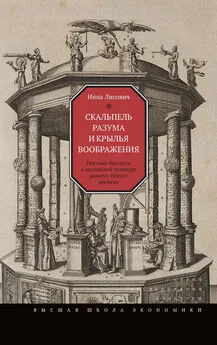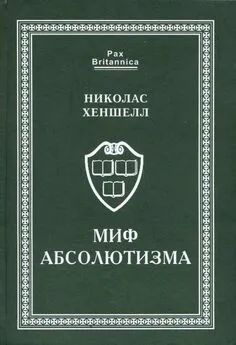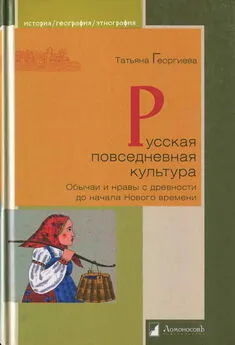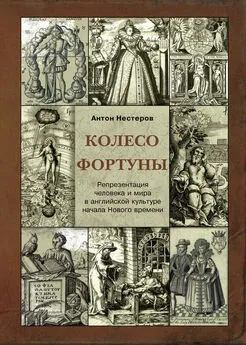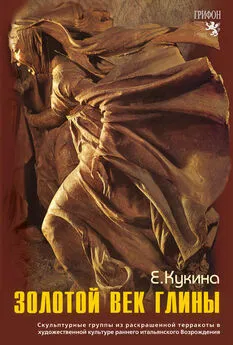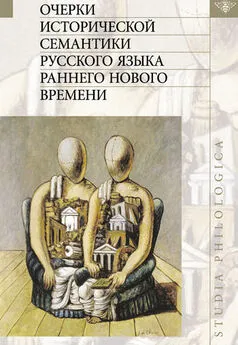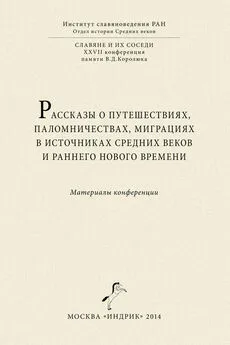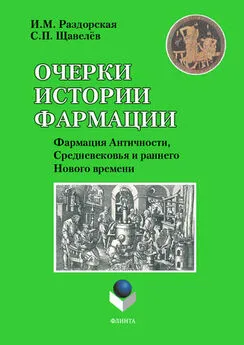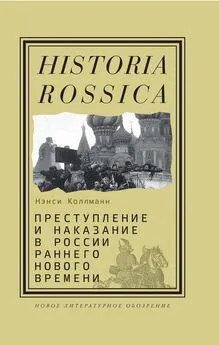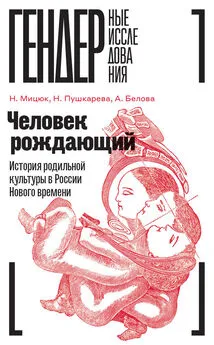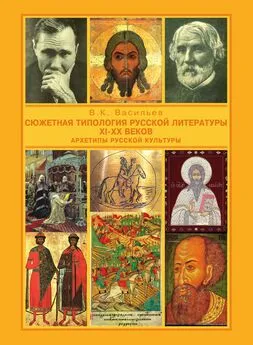Инна Лисович - Скальпель разума и крылья воображения. Научные дискурсы в английской культуре раннего Нового времени
- Название:Скальпель разума и крылья воображения. Научные дискурсы в английской культуре раннего Нового времени
- Автор:
- Жанр:
- Издательство:Литагент «Высшая школа экономики»1397944e-cf23-11e0-9959-47117d41cf4b
- Год:2015
- Город:Москва
- ISBN:978-5-7598-1105-3
- Рейтинг:
- Избранное:Добавить в избранное
-
Отзывы:
-
Ваша оценка:
Инна Лисович - Скальпель разума и крылья воображения. Научные дискурсы в английской культуре раннего Нового времени краткое содержание
Книга посвящена истории формирования науки во второй половине XVI – начале XVIII в. и культурным контекстам, в которых это происходило. В центре внимания находятся связанные между собой явления: научный метод, доказуемые теории, доступный язык, открытые научные сообщества и реакция горожан на демонстрацию опытов, публичные лекции и прочитанные исследования. Благодаря доступности научных текстов и экспериментов в это время переосмысляются такие способности души, как зрение, воображение и память, ставшие основанием нового знания, обеспечившие доверие к опыту, новым формам трансляции и сохранения информации. Происходит изменение статуса науки, ученого, научно-образовательных учреждений и научных практик, что привело к взаимовлиянию свободных искусств в области языка, концептов, идей. Это породило поэтическую рефлексию над новой картиной мира и стремление вписать в свой опыт бытия новое знание. Ученые, нередко использовавшие в работах поэзию и риторику, видели в них способ, которым можно привлечь внимание к своим работам патронов и любознательных горожан.
Для широкого круга гуманитариев – культурологов, философов, филологов, историков науки и искусства.
Скальпель разума и крылья воображения. Научные дискурсы в английской культуре раннего Нового времени - читать онлайн бесплатно ознакомительный отрывок
Интервал:
Закладка:
Alden R. M. The Lyrical Conceits of The Elizabethans // SP. 1917. No. 14. P. 129–152.
Allen D. C. Mysteriously Meant: The Rediscovery of Pagan Symbolism and Allegorical Interpretation in the Renaissance. Baltimore: Johns Hopkins University Press, 1970.
Applied Ethics in Animal Research: Philosophy, Regulation, and Laboratory applications / J.P. Gluck, T. Di Pasquale, F.B. Orlans (eds). West Lafayette, Indiana: Purdue University Press e-books OLD, 2002.
Apt A. J. The Reception of Kepler's Astronomy in England: 1596–1650. Oxford: Oxford University Press, 1982.
Babb L. Melancholy and the Elizabethan Man of Letters // HLQ. 1941. April. P. 247–261.
Badcock A. W. Physical Optics at the Royal Society 1600–1800 // The British Journal for the History of Science.1962. No. 1. P. 99–117.
Baird-Badinger A. The State of Letters: Meaty Close Readings // Essays and Studies in Literary Criticism. 2001. Vol. 10. No. 2. P. 209–222.
Bald R. C. John Donne. A Life. NY.; Oxford: Oxford University Press, 1970.
Barbour R. Between Atoms and the Spirit: Lucy Hutchinson's Translation of Lucretius // Renaissance Papers. 1994. P. 1–16.
Barbour R. English Epicures and Stoics: Ancient Legacies in Early Stuart Culture. Amherst: University of Massachusetts Press, 1998.
Barbour R. Lucy Hutchinson, Atomism, and the Atheist Dog // Women, Science and Medicine 1500–1700 / L. Hunter, S. Hutton (eds). Stroud: Sutton Publishing, 1997. P. 122–137.
Battigelli A. M. Margaret Cavendish and the Exiles of the Mind. Lexington: University Press of Kentucky, 1998.
Baumgaertner J. “Harmony” in Donne's “La Corona” and “Upon the Translation of the Psalms” // JDJ. 1984. Vol. 3. No. 2. P. 141–156.
Before Newton: The Life and Times of Isaac Barrow / M. Feingold (ed.). Cambridge: Cambridge University Press, 1990.
Bertuol R. The Square Circle of Margaret Cavendish: The 17th-Century Conceptions of Mind by Means of Mathematics // Language and Literature. 2001. Vol. 10. No. 1. P. 21–39.
Biagioli M. The Social Status of Italian Mathematicians // History of Science. 1989. Vol. XXVIII. P. 41–95.
Boner P. J. Kepler's Living Cosmology: Bridging the Celestial and Terrestrial // Centaurus. 2006. No. 48. P. 32–39.
Bossy J. Giordano Bruno and the Embassy Affair. L.: Vintage, 1992.
Bourdieu P. Homo Academicus. Stanford: Stanford University Press, 1988.
Bryan N. S. Gooch. Music for Donne // JDJ. 1996. Vol. 15. P. 171–188.
Butler M. Jonson's London and its Theatres // Cambridge Companion to Ben Jonson. Cambridge: Cambridge University Press, 2006.
Cambers A. B. “Good Friday, 1613. Riding Westward”. The Poem and the Tradition // English Literary History. 1961. No. 28. P. 32–41.
Campbell M. B. Wonder & Science: Imagining Worlds in Early Modern Europe. Ithaca; N.Y.; L.: Cornell University Press, 1999.
Cassirer E. The Platonic Renaissance in England. L.: Nelson, 1953.
Castillo D. R. Baroque Horrors: Roots of the Fantastic in the Age of Curiosities. Ann Arbor: The University of Michigan Press, 2010.
Chadwick H. Early Christian Thought and the Classical Tradition: Studies in Justin, Clement, and Origen. 2nd ed. Oxford: Clarendon Press, 1966.
Chambers A. B. “Good Friday, 1613. Riding Westward”: Looking Back // JDJ. 1987. Vol. 6. No. 2. P. 185–202.
Chambers A. B. “Good Friday, 1613. Riding Westward”. The Poem and the Tradition // English Literary History. 1961. No. 28. P. 31–42.
Chambers A. B. The Meaning of the “Temple” in Donne's “La Corona” // JEGP. 1960. No. 59. P. 212–217.
Chapman A. England's Leonardo. Robert Hooke and the Seventeenth Century Scientific Revolution. Bristol; Philadelphia: Institute of Physics Publishing, 2005.
Chapman A. Gresham College: Scientific Instruments and the Advancement of Useful Knowledge in Seventeenth-Century England // Bulletin of the Scientific Instrument Society. 1998. No. 56. P. 6–13.
Chapman A. Jeremiah Horrocks, the Transit of Venus, and the “New Astronomy” in Early Seventeenth-Century England // The Quarterly Journal of the Royal Astronomical Society. 1990. No. 31. P. 333–357.
Chartres R., Vermont D. A Brief History of Gresham College 1597–1997. L.: Gresham College, 1998.
Clark D. B. Alexander Pope. N.Y.: Twayne, 1967.
Clark S. Vanities of the Eye: Vision in Early Modern European Culture. Oxford: Oxford University Press, 2007.
Coffin C. John Donne and the New Philosophy. N.Y.: Humanities Press, 1937. (Reprint, 1958.)
Collection, Laboratory, Theater: Scenes of Knowledge in the 17th Century. Vol. 1 (Theatrum Scientiarium) / H. Schramm, L. Schwarte, J. Lazardzig (eds). Berlin: Walter de Gruyter, 2005.
Collinson P. The Elizabethan Puritan Movement. L.: Methuen, 1967.
Combecher H. John Donne's “Annunciation”: Eine Interpretation // NS. 1960. No. 9. P. 488–492.
Corbett M., Lightbown R.W. The Comely Frontispiece: The Emblematic Title-page in England, 1550–1660. L.: Routledge and Kegan Paul, 1979. P. 49–57.
Coulter J. A. The Literary Microcosm: Theories of Interpretation of the Later Neoplatonists. Leiden: Brill, 1976.
Coyne G. V., Hoskin M.A., Pedersen O. Gregorian Reform of the Calendar // Proceedings of the Vatican Conference to Commemorate Its 400th Anniversary 1582–1982. Specola Vaticana: Pontificia Academia Scientiarum, 1983.
Crosland M. Science Under Control. The French Academy of Sciences 1795–1914. Cambridge: Cambridge University Press, 1992.
Cultures of Knowledge: .
Dasgupta P., David P. A. Information Disclosure and the Economics of Science and Technology // Arrow and the Ascent of Modern Economic Theory / G. Feiwel (ed.). N.Y.: New York University Press, 1987.
David P. A. From Keeping “Nature's Secrets” to the Institutionalization of “Open Science” // University of Oxford Discussion Papers in Economic and Social History. 2001. No. 23 (July). P. 1–23.
Dear P. A Philosophical Duchess: Understanding Margaret Cavendish and the Royal Society // Science, Literature, and Rhetoric in Early Modern England / D. Burchill, J. Cummins (eds). Aldershot, 2006. P. 125–144.
Dickens A. G. Reformation and Society in Sixteenth Century Europe. N.Y.: Harcourt Brace & World, 1966.
Dickson D. R. Grace and the “Spirits” of the Heart in The Temple // JDJ. 1987. Vol. 6. No. 1. P. 55–66.
Dreyer J. L. E. History of the Planetary Systems from Thales to Kepler. Cambridge: Cambridge University Press, 1906.
Eamon W. From the Secrets of Nature to Public Knowledge: The Origins of the Concept of Openness in Science // Minerva: Review of Science, Learning, and Policy. 1985. No. 23. P. 321–347.
Edwards S. A woman is wise: the Influence of civic and christian humanism on the education of women in Northern Italy and England during the renaissance: .
Eliot T. S. A note on two odes of Cowley // Seventeenth century studies presented to sir Herbert Grierson / J.D. Wilson (ed.). Oxford: Oxford University Press, 1938.
Eliot T. S. The Metaphysical Poets // TLS. 1921. October 20. P. 669–670. (Reprint. Selected Essays, 1917–1932.)
Empson W. Seven Types of Ambiguity. L.: Hogarth Press, 1930.
Epstein J. L. Voltaire's Myth of Newton // Pacific Coast Philology. 1979. Vol. 14 (Oct.). P. 27–33.
Feingold M. The Mathematicians' Apprenticeship: Science, Universities and Society in England, 1560–1640. Cambridge: Cambridge University Press, 1984.
Feingold M. Giordano Bruno in England, Revisited // Huntington Library Quarterly. University of California Press. 2004. Vol. 67. No. 3.
Felts J. H. Richard Lower: Anatomist and Physiologist // Annals of Internal Medicine. 2000. Vol. 132. Iss. 5 (March 7). P. 420–447.
Findlen P. Anatomy Theaters, Botanical Gardens, and Natural History Collections // The Cambridge History of Science. Vol. 3. Early Modern Science. Cambridge University Press, 2006. P. 272–289.
Findlen P. Possessing Nature: Museums, Collecting, and Scientific Culture in Early Modern Italy. Berkeley: University of California Press, 1994.
Finger S. Minds behind the Brain: A History of the Pioneers and Their Discoveries. Oxford: Oxford University Press, 2004.
First Sketch, in English, of the Inaugural Oration, delivered at Gresham College. Appendix 9 // Elmes J. Memoirs of Life and Works of Sir Christopher Wren. L., 1823.
Fischler A. “Lines which circles do contain”: Circles, the Cross, and Donne's Dialectic Scheme of Salvation // Papers on Language & Literature. 1994. Vol. 30. No. 2 (Spring). P. 169–187.
Francis W. N. Donne's “Goodfriday, 1613. Riding Westward” // Expl. No. 13. P. 42–56.
Friedman D. Christ's Image and Likeness in Donne // JDJ. 1996. Vol. 15. P. 75–94.
Gardner H. General Introduction: The Religious Poetry of John Donne // Donne J. The Divine Poems. Oxford: Oxford University Press, 1964.
Glide J. M. Shadwell and the Royal Society: Satire in The Virtuoso // Studies in English Literature (1500–1900). Houston, 1971. Vol. 10. No. 3 (Summer). Restoration and Eighteenth Century. P. 469–490.
Gilman E. B. The Curious Perspective: Literary and Pictorial Wit in the 17th Century. New Haven; L.: Yale University Press, 1978.
Ginderich O. The Book Nobody Read: Chasing the Revolutions of Nicolaus Copernicus. NY.: Walker, 2004.
Ginderich O. The Eye of Heaven: Ptolemy, Copernicus, Kepler. N.Y.: American Institute of Physics, 1993.
Gingerich O. The Great Copernicus Chase and Other Adventures in Astronomical History. Cambridge, MA: Sky Publishing Corporation; Cambridge, UK: Cambridge University Press, 1992.
Gold B.K., Miller P.A., Platter C. Sex and Gender in Medieval and Renaissance Texts: the Latin Tradition. NY.: SUNY Press, 1997.
Goldberg J. Lucy Hutchinson Writing Matter // ELH. 2006. No. 73. P. 275–301.
Golinski J. V. A Noble Spectacle: Phosphorus and Public Cultures of Science in the Early Royal Society // Isis. 1989. Vol. 80 (1). P. 4–39.
Golinski J. V. Making Natural Knowledge: Constructivism and the History of Science, with a New Preface. Chicago: University of Chicago Press, 2008.
Grant E. A History of Natural Philosophy From the Ancient World to the XIX century. NY.: Cambridge University Press, 2007.
Grant E. The Foundations of Modern Science in the Middle Ages: Their Religious, Institutional and Intellectual Contexts. Cambridge: Cambridge University Press, 1996.
Grant P. Literature and the Discovery of Method in the English Renaissance. Athens: University of Georgia Press, 1985.
Greaves R. L. The Puritan Revolution and Educational Thought. New Brunswick: Rutgers University Press, 1969.
Greenblatt S. Renaissance Self-Fashioning: From More to Shakespeare. Chicago: University of Chicago Press, 2005 [1980].
Greenblatt S. The Swerve: How the World Became Modern. NY.: Norton & Company, 2011.
Greenblatt S., Gallagher C. Practicing New Historicism. Chicago: University of Chicago Press, 2000.
Guerrini A. The Ethics of Animal Experimentation in Seventeenth Century England // Journal of the History of Ideas. 1989.Vol. 50. No. 3. P. 391–407.
Читать дальшеИнтервал:
Закладка:
